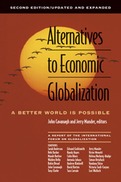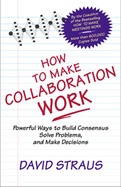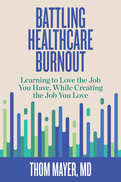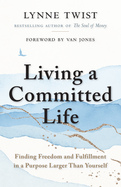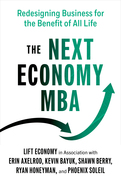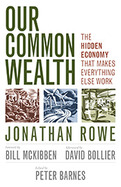This revised and expanded edition features a new opening chapter on the global balance of power, a new section on the media and globalization, and a new final chapter on what ordinary citizens can do to fight the injustices of globalization. It also includes many new charts, sidebars, and other updated information.
- The definitive document of the anti-corporate globalization movement-the consensus report of an alliance of leading activists, scholars, economists, researchers, and writers
- Offers a constructive, coherent, positive alternative to globalization-the very thing that the anti-corporate globalization movement is always accused of not putting forward
- The International Forum on Globalization consists of the leaders of over 60 organizations in 25 countries -including such prominent organizations as Friends of the Earth, the Third World Network, the Sierra Club, the Institute for Policy Studies, Public Citizen, Rainforest Action Network, and Food First
By the coauthor of the classic How to Make Meetings Work (more than 600,000 copies sold) and the originator of many of the most popular group decision-making methods
Describes five time-tested principles for making collaborative efforts more effective, efficient, and even joyful
Offers examples from Fortune 500 companies, nonprofit organizations, and communities to illustrate the principles in action
Every day we work with others to solve problems and make decisions, but the experience is often stressful, frustrating, and inefficient. In How to Make Collaboration Work, David Straus, a pioneer in the field of group problem solving, introduces five principles of collaboration that have been proven successful time and again in nearly every conceivable setting.
Straus draws on his thirty years of personal and professional experience to show how these principles have been applied by organizations as diverse as Ford Motor Company, the U.S. Environmental Protection Agency, Harvard Business School Publishing, Boston Public Schools, Kaiser Permanente, the city of Denver, and many others.
How to Make Collaboration Work shows how collaboration can become a joy rather than a chore-a kind of chemical reaction that releases far more energy than it consumes.
- By the coauthor of the classic How to Make Meetings Work (more than 600,000 copies sold) and the originator of many of the most popular group decision-making methods
- Describes five time-tested principles for making collaborative efforts more effective, efficient, and even joyful
- Offers examples from Fortune 500 companies, nonprofit organizations, and communities to illustrate the principles in action
Burnout is among the most critical topics in healthcare as it deprives us of our most important resource—the talents and passion of those who perform the difficult work of caring for patients and their families. The purpose of this book is to provide not only a taxonomy of burnout within the landscape of healthcare but also to provide pathways for healthcare professionals to guide themselves and their organizations toward changing the culture and systems of their organization.
The work of battling burnout begins from within. Thom Mayer views every healthcare team member as both a leader and performance athlete, engaged in a cycle of performance, training, and recovery. In these roles, they must both lead and protect themselves and their teams.
Battling Healthcare Burnout looks at individuals' role in promoting change within themselves and their organization and addresses solutions to change the culture and systems of work. Both are presented with a pragmatic focusand a liberal use of examples and case studies, including those from several nationally recognized healthcare systems.
How does one person make a difference in the world? People constantly seek to discover meaning in their lives, but as humans take on the challenges facing us in this decade and beyond, we're searching for it now more than ever.
Living a Committed Life demonstrates the power of dedication that goes beyond the self and teaches how to live a committed life that enables you to draw on resources and capacities from your most authentic self. In five parts, Lynne Twist shows how to make and keep commitments, engage in individual and collective action, and discover ways to connect and collaborate to make a difference.
By sharing stories and perspectives from her life, Twist reveals her unique experience as a thought leader and activist in multiple causes, from ending world hunger and protecting the Amazon rainforest to empowering women's leadership. The book presents the guiding principles that have enabled her own success and that turn inspiration into action for everyone.
2023
Many current and aspiring entrepreneurs are looking for a solid business education that also deeply aligns with their progressive values. Based on a course field-tested with over 500 students, this book fills that gap. It covers traditional topics such as business strategy and structure, finance, marketing, recruiting, and branding from a socially just and environmentally regenerative perspective. And it also touches on topics such as strategies to reverse climate change, nonviolent communication, self-managing organizations, locally self-reliant economies, racial justice, and more.
Traditional MBA programs are based on outdated principles that were developed during the Industrial Revolution-and they can be hugely expensive. Sustainable MBA programs, while laudable, are too incremental to make a sufficient impact. The Next Economy MBA is for entrepreneurs seeking to make business an active force for good. It draws on the authors' experience of working with over 300 social enterprises, from small organizations like Winona's Hemp and Heritage Farm to household names like Ben & Jerry's and Patagonia.
Our current economy, what the authors call the Business as Usual Economy, has created a massive wealth gap, a climate crisis, racial division, and needless housing, food, and healthcare shortages. This book shows how businesses can pave the way to a Next Economy that meets the basic needs of all people and restores and protects the planetary ecosystem.
2013
A huge part of our economy is invisible, invaluable, and under siege. This book describes a growing movement to recognize and defend the commons on many fronts: community initiatives, legal actions, and visionary proposals.
- Identifies an essential but overlooked and endangered sector of our economy
- Beautifully written-clear, accessible, poetic
- Filled with examples of what can be done to protect, nurture, and share our common wealth
A huge part of our economy is invisible, invaluable, and under siege. "The commons" is a term that denotes everything we share as opposed to own privately. Some parts of the commons are gifts of nature: the air and oceans, the web of species, wilderness, and watersheds. Others are the product of human creativity and endeavor: sidewalks and public squares, the Internet, our languages, cultures, technologies, and infrastructure. In graceful and down-to-earth prose, Jonathan Rowe illuminates the scale and value of the commons, its symbiotic relationship with the rest of the economy, its importance to our personal and planetary well-being, and how it is threatened by privatization and neglect.
Rowe also describes a growing movement to recognize and defend the commons on many fronts: community initiatives, legal actions, and visionary proposals such as a "sky trust" to charge polluters and distribute the proceeds to all of us. Simple gestures can be powerful too: Rowe relates how he set some benches in a vacant lot and watched a public gathering space take shape.
For decades, people have defended the commons and not known it. They've battled pollution, development, corporate marketing assaults on their kids, and many other attacks on common wealth. What's been missing is a story that unifies all these seemingly unrelated battles with the force of a powerful idea. This is what Jonathan Rowe provides in this thought-provoking book.
- Identifies an essential but overlooked and endangered sector of our economy
- Beautifully writtenclear, accessible, poetic
- Filled with examples of what can be done to protect, nurture, and share our common wealth
- Click here for the press release
A huge part of our economy is invisible, invaluable, and under siege. "The commons" is a term that denotes everything we share as opposed to own privately. Some parts of the commons are gifts of nature: the air and oceans, the web of species, wilderness, and watersheds. Others are the product of human creativity and endeavor: sidewalks and public squares, the Internet, our languages, cultures, technologies, and infrastructure. In graceful and down-to-earth prose, Jonathan Rowe illuminates the scale and value of the commons, its symbiotic relationship with the rest of the economy, its importance to our personal and planetary well-being, and how it is threatened by privatization and neglect.
Rowe also describes a growing movement to recognize and defend the commons on many fronts: community initiatives, legal actions, and visionary proposals such as a sky trust to charge polluters and distribute the proceeds to all of us. Simple gestures can be powerful too: Rowe relates how he set some benches in a vacant lot and watched a public gathering space take shape.
For decades, people have defended the commons and not known it. Theyve battled pollution, development, corporate marketing assaults on their kids, and many other attacks on common wealth. Whats been missing is a story that unifies all these seemingly unrelated battles with the force of a powerful idea. This is what Jonathan Rowe provides in this thought-provoking book.


